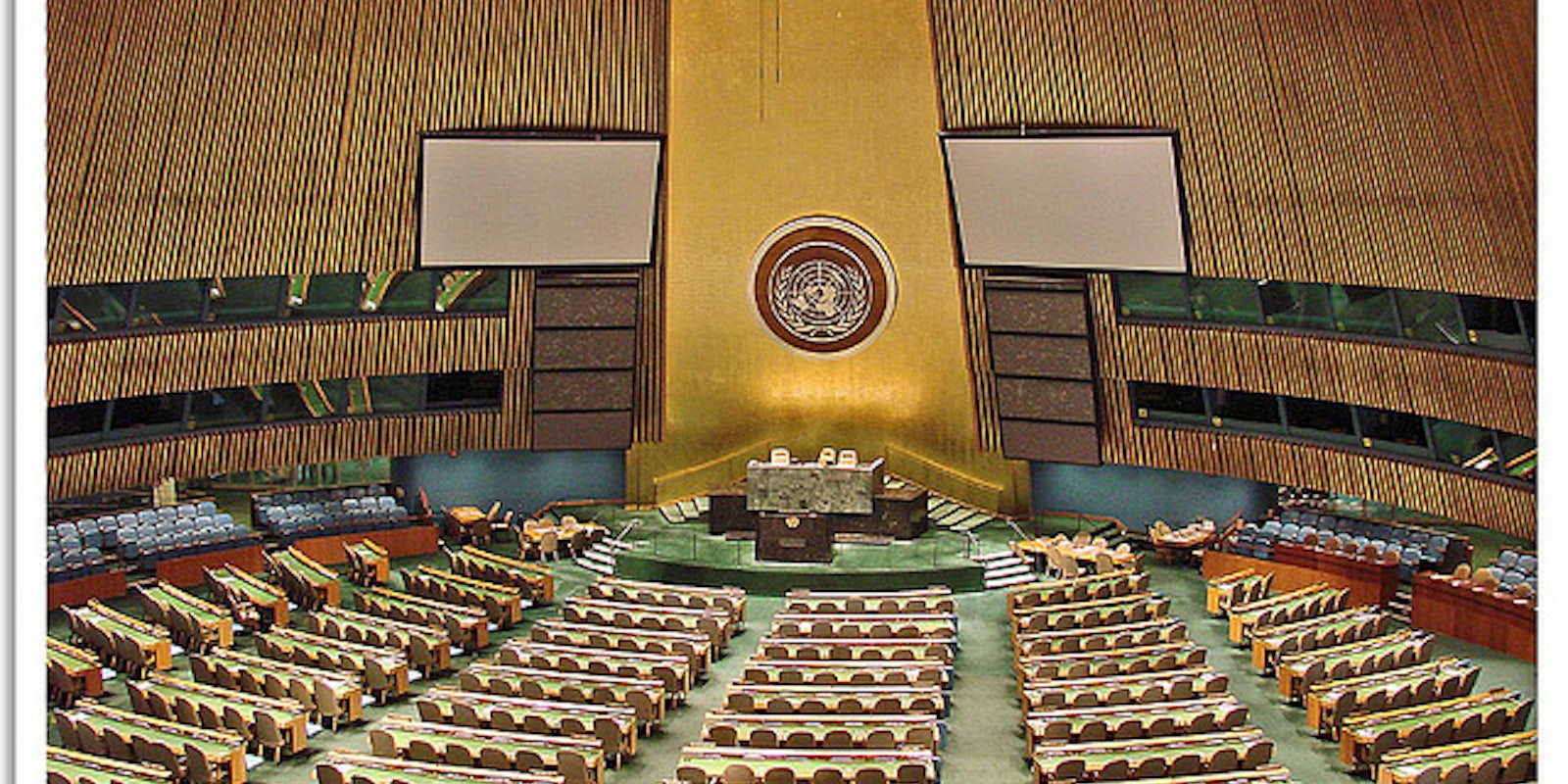The United Nations’ Human Rights Council passed a monumental resolution for Internet rights Thursday when it declared that its Universal Declaration of Human Rights applies online, not just in the real world.
The UDHR was a landmark declaration passed in 1948 as part of a post-World War II rebuilding effort. It lists among its 30 articles that no one should be persecuted for religious or political views, that everyone has a right to free expression, and that accused criminals are innocent until proven guilty.
“We can all say that human rights in the online world are as real as human rights in the offline world,” Eileen Donahoe, U.S. ambassador to the Human Rights Council, said in a prepared statement.
The U.S. presented the resolution along with five other countries, and 85 countries in total signed it. Interestingly, two other of the presenting countries, Brazil and Turkey, have each recently prosecuted its citizens for offensive tweets.
The resolution’s text is short, but it stresses the ways in which citizens’ rights must be made clear online.
“[T]he same rights that people have offline must also be protected online, in particular freedom of expression, which is applicable regardless of frontiers and through any media of one’s choice,” the resolution states.
Photo by Jorbasa


